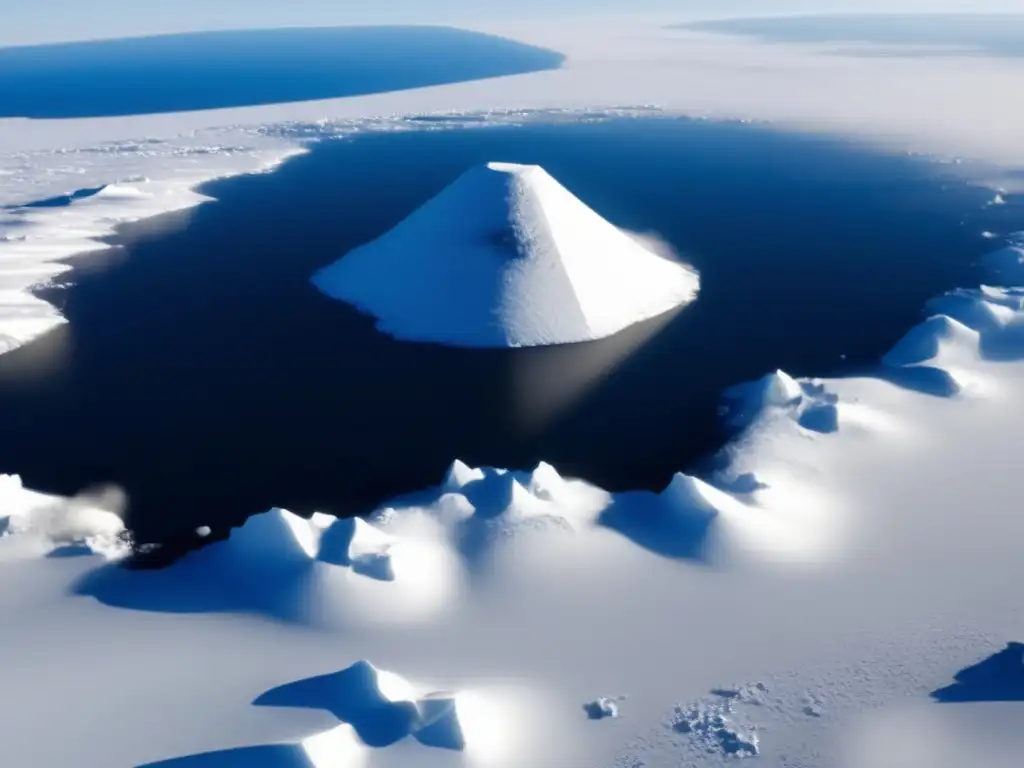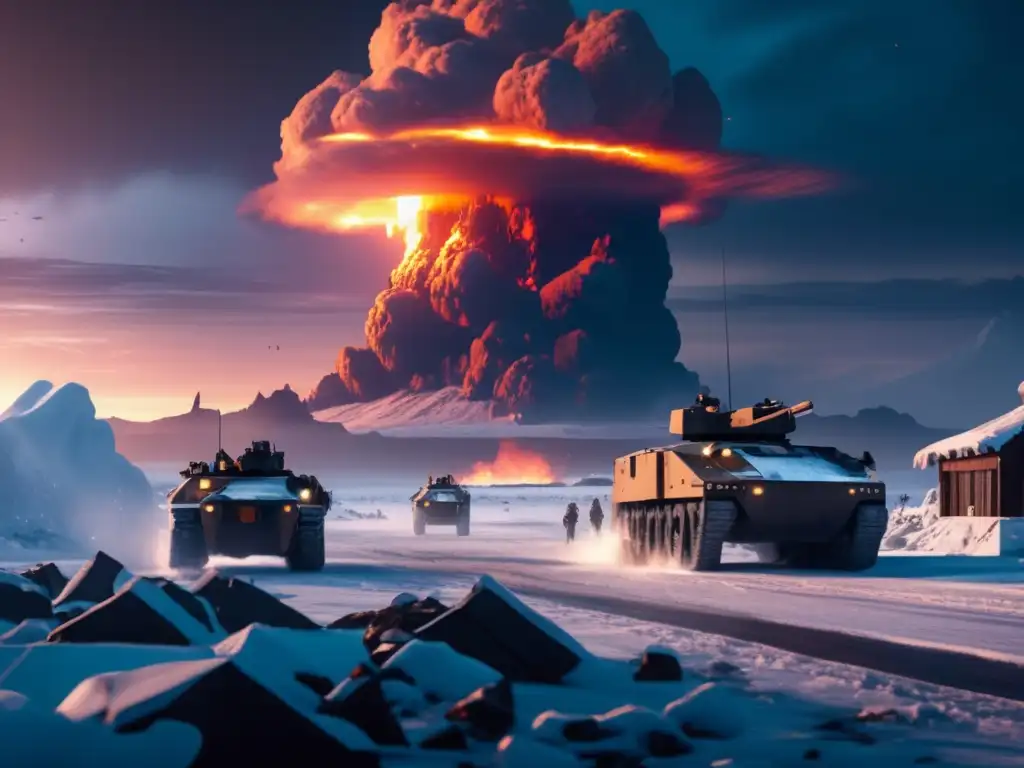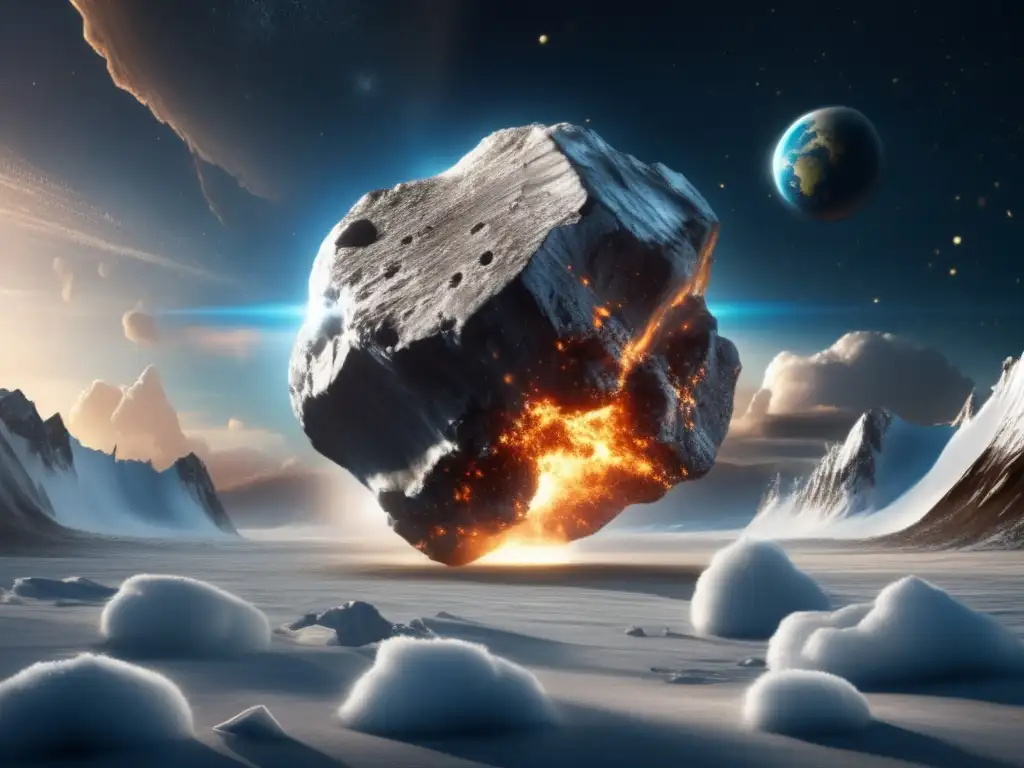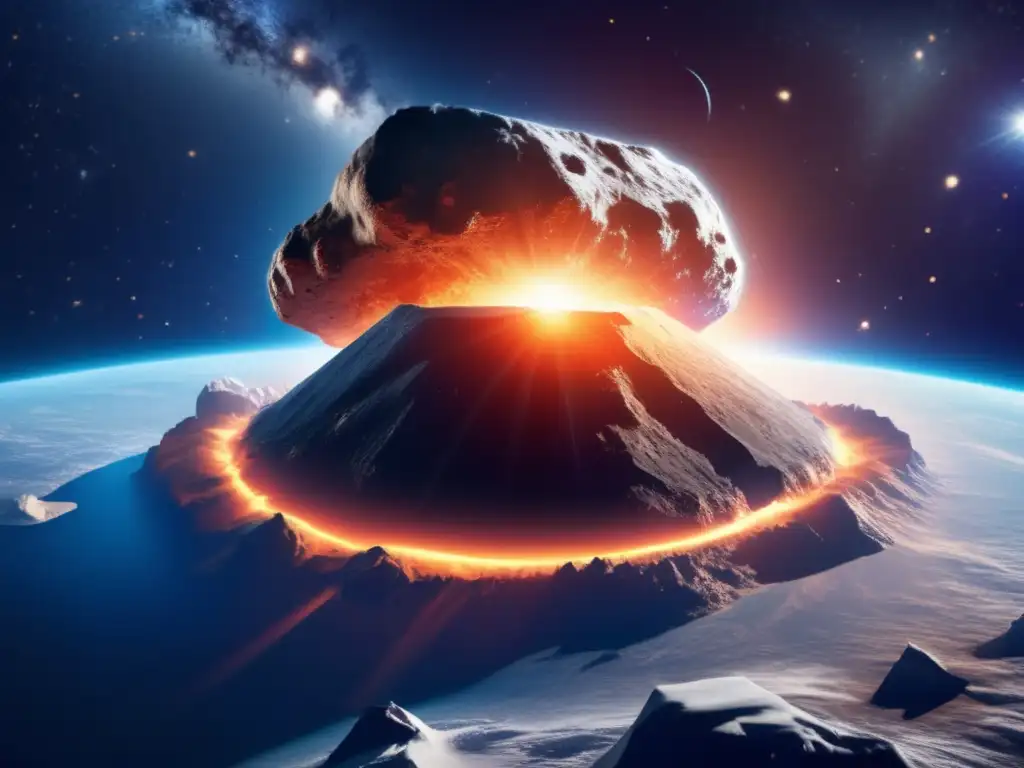Impacts On Ice: Asteroids And Earth's Polar Regions

Introduction
Asteroid impacts have been a subject of fascination for centuries. These collisions have played a significant role in shaping the geological history of our planet, and their impact on life is equally profound. The polar regions are particularly vulnerable to asteroid impacts. They are covered with ice sheets that mask impact craters and make it difficult to study them. Yet, recent studies suggest that polar regions are more prone to asteroid impacts than previously thought. In this article, we will explore the impact of asteroids on Earth's polar regions, and how these collisions shape our planet's history.
The Impact of Asteroids on Earth's Polar Regions

What happens when an asteroid impacts on ice?
When an asteroid hits the Earth's polar regions, it creates a massive explosion that can melt billions of tons of ice. In some cases, the impact can create a large crater or even cause the ice sheet to break apart completely. The effect can be catastrophic, as the melting ice can raise sea levels, flooding coastal areas, and altering the Earth's climate. In addition, the impact can release large quantities of dust and other particles into the atmosphere, which can block out sunlight, causing a cooling effect that can last for several years.
What are the implications of asteroid impacts on global climate change?
Asteroid impacts have long-term effects on global climate change. They can cause sudden changes in temperature and rainfall patterns, which can impact plant growth and animal behavior. In addition, the dust and other particles released into the atmosphere can block sunlight, reducing the amount of energy that reaches the Earth's surface. This can lead to less heating, resulting in a cooling effect that can last for several years, known as the "nuclear winter" effect.
How often do asteroids impact Earth's polar regions?
Asteroid impacts on Earth's polar regions are relatively rare, but they can have a significant impact on the planet's climate and geological history. In recent years, scientists have discovered evidence of several large asteroid impacts at both poles, including a massive impact that occurred in Greenland around 12,000 years ago. However, because much of the polar regions are covered with ice sheets, it can be difficult to detect impact craters and estimate how often these collisions occur.
The Effects of Asteroid Impacts on Life

What is the impact of asteroid impacts on life in polar regions?
The impact of asteroid impacts on life in polar regions can be devastating. Animals that rely on ice, such as polar bears and walruses, can lose their habitats, and their food sources can become scarce. Marine ecosystems can also be impacted, as the melting ice can change the salinity levels of the surrounding waters and alter currents that carry nutrients to different parts of the ocean. In addition, the release of dust and other particles into the atmosphere can cause widespread wildfires and globally alter weather patterns.
What is the impact of asteroid impacts on global extinction events?
Asteroid impacts have been linked to several of the Earth's mass extinction events. The most famous example is the impact that occurred near the Yucatan Peninsula around 65 million years ago, which is believed to have caused the extinction of the dinosaurs. The impact created a massive explosion that sent debris and dust into the atmosphere, blocking out sunlight and causing a cooling period that lasted for several years. This cooling likely contributed to the extinction of many plant and animal species.
Are there any positive effects of asteroid impacts on life?
While asteroid impacts can be devastating, they can also create new habitats and provide opportunities for life to evolve. For example, asteroid impacts can create new landmasses and geological features, and expose new nutrient sources that can support new ecosystems. In addition, it is believed that the asteroid impact that killed the dinosaurs created the conditions that allowed mammals to become the dominant group of animals on Earth.
Frequently Asked Questions

-
Can an asteroid impact cause an ice age?
Yes, the dust and other particles released into the atmosphere by an asteroid impact can block out sunlight, causing a cooling period that can last for several years, resulting in a mini-ice age.
-
What is the largest asteroid impact ever recorded?
The largest asteroid impact ever recorded was the Chicxulub impact that occurred about 65 million years ago, which is believed to have caused the extinction of the dinosaurs.
-
Can asteroids impact other planets in our solar system?
Yes, asteroids can impact other planets in our solar system. In fact, several asteroids have impacted on Mars, and evidence of asteroid impacts has been found on Venus and Mercury.
-
Can we predict asteroid impacts on Earth?
Scientists are continuously monitoring asteroids and comets that come close to Earth, and several organizations are working on developing technologies to deflect asteroids that pose a threat to Earth.
-
How can I learn more about asteroid impacts?
Several websites and books are dedicated to the study of asteroids and their impact on Earth. The NASA website has a section on asteroids and comets, and the book "The End of the World: Asteroid Impact!" by J.L. Powell provides an in-depth look at the subject.
Conclusion
Asteroid impacts on Earth's polar regions have played a significant role in shaping our planet's history. They have caused mass extinctions, altered global climate patterns, and forever changed the geological landscape of our planet. As we continue to study asteroids and their impact on Earth, it is critical that we work together to develop technologies to detect, deflect, and mitigate the impact of these collisions. By doing so, we can protect our planet from potential catastrophic events.
Additional Resources

- NASA's Asteroid and Comet Watch: https://www.nasa.gov/asteroid-and-comet-watch
- The End of the World: Asteroid Impact! by J.L. Powell (Book)
- Asteroid Impact Effects Calculator: http://www.purdue.edu/impactearth
- The Planetary Society: https://www.planetary.org/space-policy-and-advocacy/planetary-defense
 Fire In The Sky: Understanding Asteroid Impact Phenomena
Fire In The Sky: Understanding Asteroid Impact Phenomena Blast From The Past: Fossil Records And Asteroid Impacts
Blast From The Past: Fossil Records And Asteroid Impacts Asteroid Strikes And Human Society: An Hypothetical Exploration
Asteroid Strikes And Human Society: An Hypothetical ExplorationIf you want to discover more articles similar to Impacts On Ice: Asteroids And Earth's Polar Regions, you can visit the Asteroid Impacts category.
Leave a Reply

Articulos relacionados: